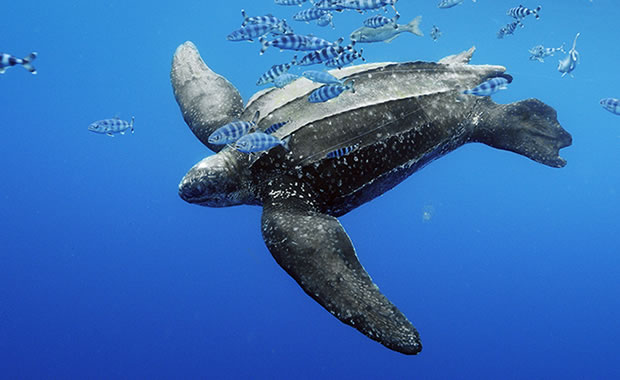
Whiskered Pitta
Billy Simpson |
Creature Profile
The Whiskered Pitta is endemic to Luzon in the Philippines where it is restricted to forest in the mountains of Cordillera Central and the Sierra Madre and Bicol region. Adults reach an average length of eight inches. Plumage is brightly colored with different colors on several parts of the body. The fore-crown (forehead) is brown, and the rear crown and neck are rusty-orange, and there is a pinkish stripe on the malar (cheeks). The breast is blue, and the rest of the underparts are red. The upperparts are olive-green except for the blue patches on the rump and wings, and the legs are long and grayish-blue. Young pitas are brown with pale spots on the breast.
This bird prefers lowland and montane evergreen forest habitat, and seems to favor montane oak forest especially where there is dense undergrowth and steep ravines. It can also tolerate degraded and selectively logged areas, and it is believed to be a migratory species possibly relocating during the rainy seasons. It is a terrestrial foraging bird (ground dweller) and feeds on insects in the ground by digging in the wet soil with its bill. It is believed that these birds breed anywhere between January and March, and young pitas have been seen being fed by adult pitas in mid-April. The adults build nests on the ground or in a bush within one meter of the ground.
Threats to the species are habitat loss and hunting by locals. The species is protected in four areas: the Northern Sierra Madre Natural Park, Mt. Isarog and Mt. Pulog National Parks, and the Maria Aurora Memorial Natural Park. Conservationists have recommended further study of the natural habitat and migratory patterns of the species, initiating a captive breeding program, and legal protection of its entire range.
Wikipedia Article

|
Wikipedia Article Copyright Notice: This article is licensed under the GNU Free Documentation License. It uses material from the Wikipedia article "Whiskered pitta". |
May 12, 2017
Glenn, C. R. 2006. "Earth's Endangered Creatures - Whiskered Pitta Facts" (Online). Accessed 4/25/2024 at http://earthsendangered.com/profile.asp?sp=371&ID=3.
Need more Whiskered Pitta facts?




